Germany
Welcome to Germany
Step into a country where fairy-tale castles rise above misty forests, vibrant cities pulse with creativity, and centuries of history meet cutting-edge innovation. Germany in 2025 is more than a destination—it’s an experience that invites you to explore its rich tapestry of culture, nature, and tradition. Whether you’re drawn by the allure of medieval towns, the buzz of world-class festivals, or the tranquility of alpine lakes, Germany promises an unforgettable journey for every traveler.
Germany, situated in the heart of Europe, is a land of remarkable diversity. From the windswept shores of the North Sea to the snow-capped peaks of the Bavarian Alps, its landscapes are as varied as its cultural offerings. The country is made up of 16 federal states, each with its own unique character, cuisine, and dialect. Germany’s cities—Berlin, Munich, Hamburg, Cologne, and beyond—are modern hubs of art, music, and gastronomy, while its countryside offers storybook villages, sprawling vineyards, and pristine national parks. In 2025, Germany continues to set trends in sustainable tourism, blending its historic charm with eco-friendly travel initiatives. Major cities are embracing green mobility, with electric bikes, efficient public transport, and pedestrian-friendly zones making exploration easier and more enjoyable than ever. The country’s calendar is packed with events, from the legendary Oktoberfest to the magical Christmas markets, ensuring there’s always something to celebrate. Why Visit Germany?
1.
Germany’s appeal lies in its ability to honor its past while embracing the future. Wander through the cobbled streets of Rothenburg ob der Tauber, marvel at the engineering of the Brandenburg Gate, or stand in awe beneath the soaring spires of Cologne Cathedral. Yet, Germany is also a land of innovation—2025 sees a surge in contemporary art exhibitions, immersive food tours, and architectural walks that reveal the country’s dynamic present. Whether you’re a history buff, an art lover, or a foodie, Germany’s evolving cultural scene offers endless inspiration.
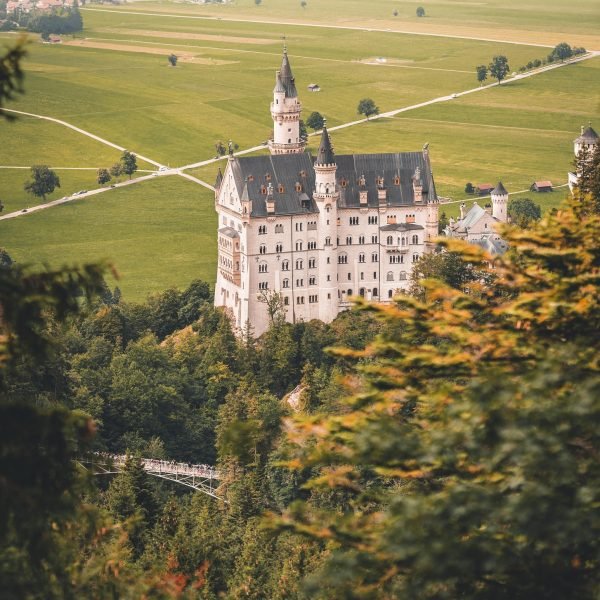
2.
Traveling to Germany in 2025 means being part of a vibrant tapestry of festivals and events. Highlights include:
- Oktoberfest in Munich: The world’s largest beer festival, where Bavarian tradition comes alive with music, food, and camaraderie.
- 35th Anniversary of German Reunification: Cities like Berlin and Dresden host parades, exhibitions, and cultural showcases marking this historic milestone.
- International Garden Expo (BUGA) in Hamburg: A paradise for nature lovers, featuring stunning floral displays and innovative green spaces.
- Christmas Markets: From late November, towns and cities transform into winter wonderlands, with festive stalls, twinkling lights, and the scent of mulled wine in the air.
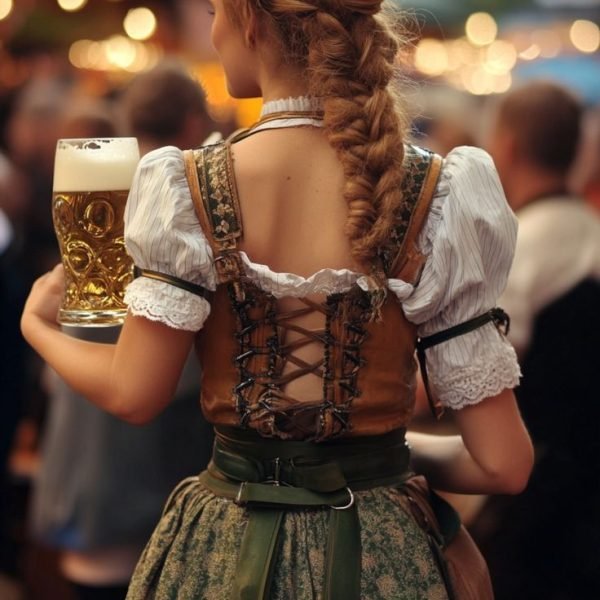
Planning Your Trip
Visa Information
Germany is part of the Schengen Area, which allows for easy travel between 29 European countries. However, visa requirements depend on your nationality, the length of your stay, and the purpose of your visit.
- EU/EFTA Nationals: Citizens of European Union and EFTA countries do not need a visa or permit to enter Germany. A valid passport or national ID card is sufficient.
- Visa-Free Countries: Citizens from countries such as the UK, USA, Australia, Canada, and South Korea can visit Germany visa-free for up to 90 days within a 180-day period. However, starting May 2025, travelers from these countries must obtain an online travel authorization (ETIAS) before entry. This is a quick electronic process but must be completed in advance.
- Other Nationals: Travelers from over 100 countries must apply for a Schengen visa before arriving in Germany. This short-term visa (Type C) allows stays of up to 90 days for tourism, business, or family visits.
- Long-Term Stays: If you plan to work, study, or stay longer than 90 days, you’ll need a national visa (Type D) and, in most cases, a residence permit. These visas require more extensive documentation and must be applied for before you arrive in Germany.
Visa Application Process
- Determine the Right Visa: Identify the visa category that matches your purpose—tourism, business, study, work, or family reunion.
- Gather Required Documents: Common requirements include a completed visa application form, a valid passport, recent passport-sized photos, proof of travel health insurance, travel itinerary, proof of accommodation, and evidence of sufficient funds.
- Submit Your Application: Apply at the German embassy or consulate in your home country, ideally at least two weeks before your planned travel. Some visa types may require a personal interview.
- Pay the Visa Fee: Fees vary depending on the visa type and applicant’s age.
- Wait for Processing: Processing times can range from a few days for short-term visas to several weeks for long-term or work visas.
Special Notes for 2025
- ETIAS authorization becomes mandatory for travelers from visa-free countries starting May 2025.
- Always check the latest requirements before your trip, as rules may change.
Best Time to Visit
Germany is a year-round destination, but the best time to visit depends on your interests and the experiences you seek.
- Spring (March to May): Mild temperatures and blooming landscapes make spring ideal for city sightseeing, hiking, and exploring gardens. Major cities like Berlin and Munich come alive with outdoor events and festivals.
- Summer (June to August): Warm weather and long daylight hours draw crowds to outdoor cafes, music festivals, and lakes. This is the high season, especially in tourist hotspots like Bavaria, the Rhine Valley, and the Baltic coast.
- Autumn (September to November): Crisp air and vibrant foliage make autumn a favorite for wine lovers and hikers. Oktoberfest in Munich and numerous wine festivals across the country offer a taste of German tradition.
- Winter (December to February): Germany transforms into a winter wonderland with Christmas markets, festive lights, and snow in the Alps. Cities like Dresden, Nuremberg, and Cologne are famous for their magical holiday markets, while ski resorts in Bavaria attract winter sports enthusiasts.
Travel Tips by Season
- Book accommodations and tickets in advance during peak months (June–August, December).
- Pack layers for spring and autumn, as weather can be unpredictable.
- Winter travelers should prepare for cold temperatures, especially in the south and east.
Getting To and Around
Getting to Germany
Germany is exceptionally well-connected by air, rail, and road, making it easy to reach from almost anywhere in the world.
- By Air: Major international airports include Frankfurt, Munich, Berlin, and Düsseldorf. Frankfurt Airport is one of Europe’s busiest hubs, offering direct flights to and from all continents. Smaller airports in Hamburg, Stuttgart, and Cologne also serve international routes.
- By Train: Germany’s rail network is integrated with neighboring countries. High-speed trains like ICE, TGV, and Railjet connect Germany with France, Switzerland, Austria, the Netherlands, Belgium, and beyond.
- By Road: The autobahn system links Germany with all its neighbors. Long-distance bus services provide budget-friendly options from across Europe.
- By Sea: Ferries connect northern Germany with Scandinavia and the UK, particularly from ports like Kiel, Rostock, and Hamburg.
Getting Around Germany
Once in Germany, you’ll find a transportation system renowned for its efficiency, punctuality, and coverage.
- Trains: Deutsche Bahn (DB) operates a vast network of high-speed (ICE), intercity (IC), and regional trains. The rail system is ideal for city-to-city travel and scenic routes, such as the Rhine Valley or Black Forest lines.
- Public Transport: Cities and towns feature integrated networks of U-Bahn (subway), S-Bahn (commuter trains), trams, and buses. Tickets are usually valid across all modes within a city.
- Car Rental: Renting a car is straightforward and offers flexibility, especially for exploring rural areas, castles, and scenic drives like the Romantic Road or the Alpine Route. The autobahn is famous for stretches without speed limits, but always drive safely and observe local rules.
- Biking: Germany is bike-friendly, with dedicated lanes in cities and extensive cycling routes through the countryside. Many cities offer bike-sharing schemes.
- Domestic Flights: While trains are often faster and more eco-friendly, domestic flights connect major cities for those short on time.
- Taxis and Ride-Sharing: Taxis are widely available, though more expensive than public transport. Ride-sharing apps operate in most urban areas.
Travel Tips for Getting Around
- Purchase a German Rail Pass for unlimited train travel if you plan to visit multiple cities.
- Download local transport apps for real-time schedules and ticket purchases.
- Validate your ticket before boarding trains or trams to avoid fines.
Accessibility and Sustainability
Germany is a leader in sustainable travel. Public transport is increasingly powered by renewable energy, and many cities feature low-emission zones. Accessibility is a priority, with most stations, buses, and attractions equipped for travelers with reduced mobility.
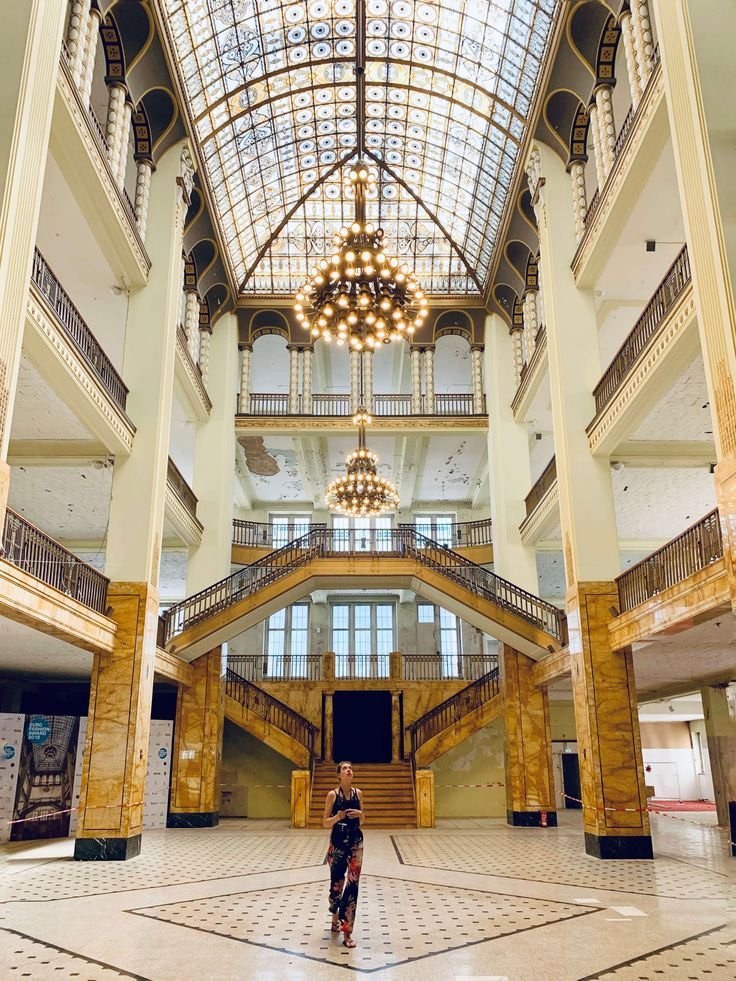
Accommodation
Germany’s accommodation options are diverse, catering to students, tourists, business travelers, and families alike. From affordable shared flats to upscale hotels, here’s an overview to help you find the perfect place to stay.
Hotels and Guesthouses
Germany boasts a broad spectrum of hotels ranging from budget-friendly to luxury. Major cities like Berlin, Munich, and Hamburg feature internationally renowned hotel chains as well as charming boutique hotels. Many hotels offer modern amenities such as free Wi-Fi, fitness centers, and on-site dining. For example, hotels like the Grand Hyatt Berlin or Hotel Riu Plaza Berlin provide stylish, comfortable rooms with excellent service and convenient locations near city attractions.
Student Accommodation
For students or long-term visitors, Germany offers several accommodation types:
- Student Dormitories (Studentenwohnheime): These are often the most affordable option, managed by universities or student organizations. Dorm rooms typically include basic furnishings and utilities, with rents ranging from approximately €200 to €400 per month. However, demand is high, so early application is essential.
- Shared Flats (Wohngemeinschaft or WG): Popular among students and young professionals, WGs allow residents to rent a private bedroom while sharing common areas like kitchens and bathrooms. This option balances privacy and social interaction and usually costs between €300 and €600 monthly depending on the city.
- Private Apartments: For those seeking full independence, private apartments or studios are available. Prices vary widely, from around €500 in smaller cities to over €1,200 in Munich or Berlin. These apartments often come fully furnished and are located close to universities or city centers.
Temporary and Short-Term Housing
If you arrive before securing long-term accommodation, temporary options include Airbnb, hostels, or short-stay hotels. While more expensive, these provide flexibility and immediate shelter.
Popular Locations and Cost Overview
Accommodation costs vary significantly by city. Here’s a rough guide for student-related housing costs per month:
City | Student Dormitories (€) | Shared Flats (€) | Private Rentals (€) |
Berlin | 250–400 | 350–600 | 800–1,200 |
Munich | 300–500 | 500–800 | 1,000–1,500 |
Hamburg | 250–450 | 400–700 | 900–1,300 |
Leipzig | 200–350 | 300–500 | 700–1,000 |
Choosing accommodation near public transport hubs or university campuses can save time and commuting costs.
Tips for Booking Accommodation
- Start your search early, especially if you plan to stay in popular cities or during peak seasons.
- Use trusted platforms and local agencies that specialize in German rentals. Websites like Immobilienscout24 and city-specific companies can be very helpful.
- Consider shared flats if you want to meet locals and save money.
- Always clarify rental terms, deposits, and included utilities before signing contracts.
- Temporary housing can be a good fallback if you need time to find a permanent place.

Food and Drink
Germany’s culinary scene is as rich and varied as its cultural heritage. From hearty traditional dishes to innovative modern cuisine, the country offers something for every palate.
Traditional German Cuisine
German food is known for its robust flavors and regional diversity. Some staples you should try include:
- Bratwurst: Grilled sausages served with mustard and bread or sauerkraut.
- Sauerbraten: A pot roast, usually beef, marinated in vinegar and spices, slow-cooked to tender perfection.
- Pretzels (Brezn): Soft, salty baked bread, often enjoyed with mustard or cheese.
- Schnitzel: Breaded and fried meat cutlets, typically pork or veal.
- Spätzle: Soft egg noodles popular in southern Germany, often served with cheese or gravy.
- Black Forest Cake (Schwarzwälder Kirschtorte): A decadent dessert with layers of chocolate, cherries, and whipped cream.
Regional specialties vary widely: Bavaria is famous for its beer and hearty fare, while the Rhineland offers excellent wines and lighter dishes.
Modern and International Cuisine
Germany’s cities are culinary melting pots. You’ll find everything from Michelin-starred restaurants to street food markets offering global flavors. Berlin, in particular, is known for its vibrant food scene, including vegan and vegetarian options, international fusion, and creative gastronomy.
Beer and Wine Culture
Germany’s beer culture is world-famous. Each region has its own beer specialties, such as:
- Pilsner: A light, crisp beer popular nationwide.
- Weißbier (Wheat Beer): Especially common in Bavaria, with a fruity, yeasty flavor.
- Kölsch: A light beer brewed exclusively in Cologne.
- Dunkel: Dark beers with rich malt flavors.
The country’s wine regions, such as the Moselle and Rhine valleys, produce exceptional Rieslings and other white wines. Visiting a local vineyard or wine tavern (Weinstube) is a delightful way to experience German wine culture.
Dining Out and Food Markets
- Restaurants and Biergartens: Traditional restaurants serve hearty meals, while beer gardens offer a relaxed atmosphere for enjoying food and drink outdoors during warmer months.
- Street Food and Markets: Weekly markets and food festivals are great places to sample fresh produce, regional specialties, and artisanal products.
- Cafés and Bakeries: Germany’s cafés serve excellent coffee and pastries like Apfelstrudel and Berliner doughnuts.
Practical Tips for Food and Drink
- Many restaurants offer “Mittagstisch” (lunch specials) at reduced prices, perfect for budget travelers.
- Tipping around 5-10% is customary if service is not included.
- Tap water is safe and free in restaurants, so you can request it without hesitation.
- Try seasonal dishes and regional specialties to get the full culinary experience.
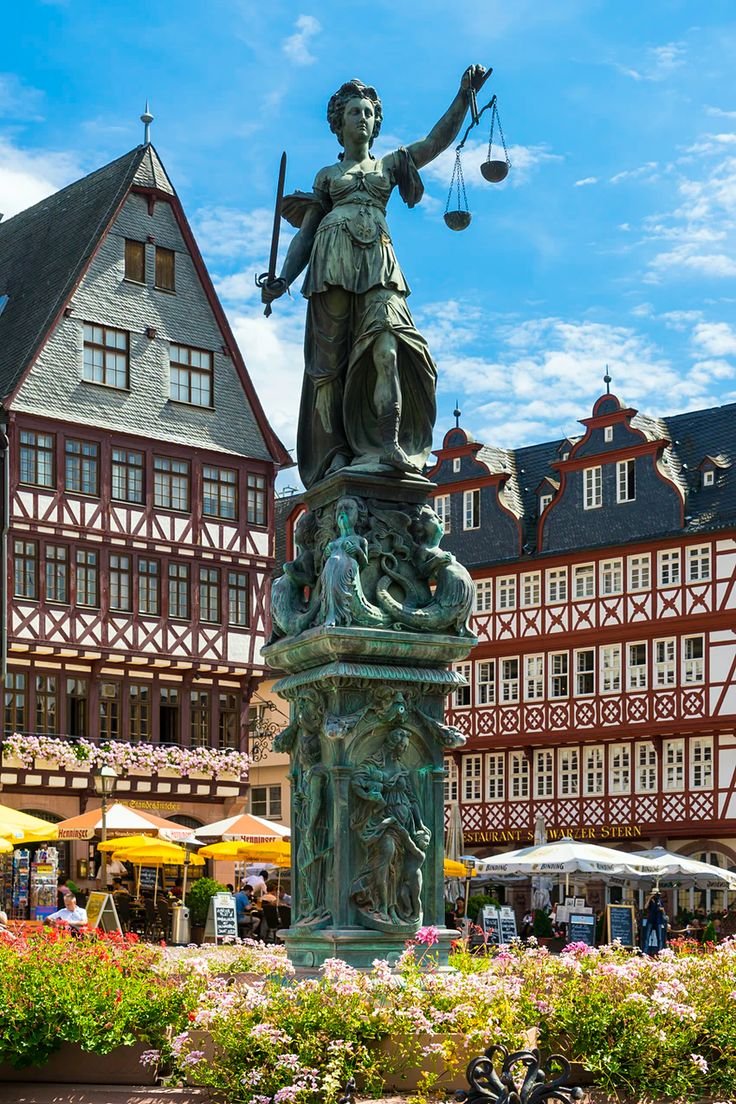
Must-See Attractions
Germany is a country where history, culture, and nature come together to create an extraordinary travel experience. In 2025, whether you’re a first-time visitor or returning traveler, Germany offers a wealth of must-see attractions and unforgettable activities that showcase its diverse landscapes, rich heritage, and vibrant urban life. Here’s a detailed guide to help you discover the best of Germany.
- Neuschwanstein Castle
One of the most iconic castles in the world, Neuschwanstein Castle looks like it was plucked straight from a fairy tale. Located in Bavaria near Füssen, this 19th-century palace was commissioned by King Ludwig II and inspired Disney’s Sleeping Beauty Castle. Its dramatic hilltop setting overlooking lush valleys and alpine peaks makes it a photographer’s dream. Inside, you’ll find over 200 rooms richly decorated with murals and intricate woodwork. The castle attracts about 1.4 million visitors annually, so booking tickets in advance is recommended. - Berlin Museum Island
In the heart of Berlin lies Museum Island, a UNESCO World Heritage site that houses five world-class museums. It’s a treasure trove of art, archaeology, and history, featuring masterpieces like the bust of Nefertiti and the Pergamon Altar. The island itself is a beautiful place to stroll, surrounded by the Spree River and historic architecture. - The Rhine Valley
The Rhine Valley is famed for its romantic landscapes dotted with medieval castles, vineyards, and charming towns. Take a river cruise to soak in the views of terraced vineyards and the legendary Lorelei rock. Towns like Bacharach and St. Goar offer picturesque streets, wine taverns, and historic sites. - Miniatur Wunderland, Hamburg
This is the world’s largest model railway exhibit, featuring incredibly detailed miniature recreations of cities like Hamburg, Austria, and even the Grand Canyon. It’s a fascinating attraction for families and anyone interested in engineering and craftsmanship. - The Black Forest National Park
Known for its dense evergreen forests, cuckoo clocks, and traditional villages, the Black Forest offers a peaceful retreat into nature. Hiking trails, waterfalls, and spa towns like Baden-Baden make it a perfect destination for relaxation and outdoor activities. - Reichstag Building, Berlin
The seat of the German Parliament, the Reichstag is a symbol of Germany’s turbulent history and democratic future. Visitors can tour the building and ascend the glass dome for panoramic views of Berlin’s skyline. - Chemnitz — European Capital of Culture 2025
Chemnitz shines in 2025 with a rich cultural program celebrating its industrial heritage and art scene. Explore the Art Nouveau district of Kaßberg, the Villa Esche museum, and the Karl Schmitt-Rottluff House for a deep dive into German expressionism. - Hohenzollern Castle
Perched atop Mount Hohenzollern, this castle is a stunning example of German royal architecture with 140 rooms filled with historic artifacts. The panoramic views from the hilltop are breathtaking. - Rakotzbrücke (Devil’s Bridge), Saxony
This 19th-century stone bridge is famous for its perfect semicircular reflection in the water below, creating the illusion of a complete circle. It’s a magical spot for photography and quiet contemplation. - Lake Königssee and Bavarian Alps
Nestled in the Alps, Lake Königssee is known for its crystal-clear emerald waters and dramatic mountain backdrop. Take a boat trip to St. Bartholomew’s Church or hike the surrounding trails for stunning alpine scenery.
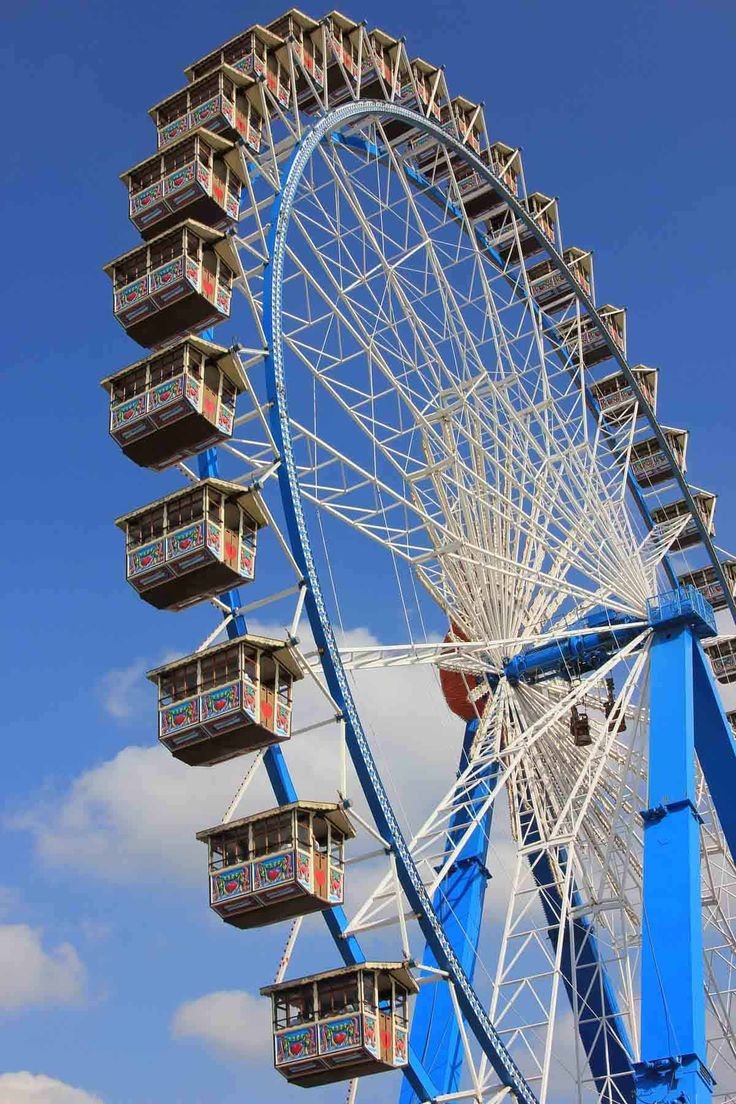
Must-Do Activities
- Explore Historic City Centers
Wander through the medieval streets of Rothenburg ob der Tauber, with its well-preserved city walls and half-timbered houses. Visit Wurzburg’s Residenz Palace, a baroque masterpiece, or stroll through Heidelberg’s romantic old town and castle ruins. - Attend Oktoberfest in Munich
The world’s largest beer festival, Oktoberfest, is a must-do for anyone visiting in late September to early October. Enjoy traditional Bavarian music, hearty food, and, of course, the famous beer served in giant steins. The festive atmosphere is unmatched, with locals and tourists alike dressed in traditional lederhosen and dirndls. - Take a Rhine River Cruise
A cruise along the Rhine offers a relaxing way to see castles, vineyards, and quaint villages. Many cruises include stops for wine tastings and visits to historic towns, providing a perfect combination of sightseeing and indulgence. - Hike the Black Forest High Road
Drive or hike along the scenic Black Forest High Road, stopping at points like the Mummelsee lake and Hornisgrinde, the highest peak in the northern Black Forest. This route offers panoramic views and opportunities for outdoor activities like hiking and cycling. - Visit the Christmas Markets
From late November through December, Germany’s Christmas markets transform towns and cities into festive wonderlands. The markets in Dresden, Nuremberg, and Cologne are especially famous for their handcrafted gifts, mulled wine (Glühwein), and seasonal treats. - Experience the Harz Mountains by Steam Train
Ride the nostalgic Harz narrow-gauge steam railway up to the Brocken, the highest peak in northern Germany. The journey through dense forests and quaint villages is enchanting, especially during autumn or winter. - Discover the Art and Culture in Chemnitz
As the European Capital of Culture in 2025, Chemnitz offers exhibitions, concerts, and festivals highlighting its rich artistic heritage. Explore museums, galleries, and architectural gems like Villa Esche and the Kaßberg district. - Explore UNESCO World Heritage Sites
Visit the Upper Germanic-Raetian Limes, a Roman frontier fortification, or the Maulbronn Monastery, one of the best-preserved medieval monastic complexes in Europe. These sites offer a glimpse into Germany’s deep historical roots. - Sample German Cuisine and Beer
No trip to Germany is complete without tasting local specialties such as bratwurst, pretzels, schnitzel, and Black Forest cake. Pair your meal with regional beers or wines, especially in Bavaria and the Rhine Valley. - Cycle Along the Danube and Moselle Rivers
Germany offers excellent cycling routes along its rivers. The Danube Cycle Path and Moselle Valley routes combine scenic landscapes with cultural stops at castles, vineyards, and charming towns.
Bonus Tips for 2025 Travelers
- Plan ahead for popular sites like Neuschwanstein Castle and Oktoberfest, as these attract millions of visitors.
- Use Germany’s efficient public transport to easily access many attractions, from high-speed trains to local trams.
- Explore lesser-known gems like Rakotzbrücke or Chemnitz to experience authentic culture away from crowds.
- Combine nature and culture by visiting regions like the Black Forest or the Harz Mountains, where hiking trails meet historic towns.
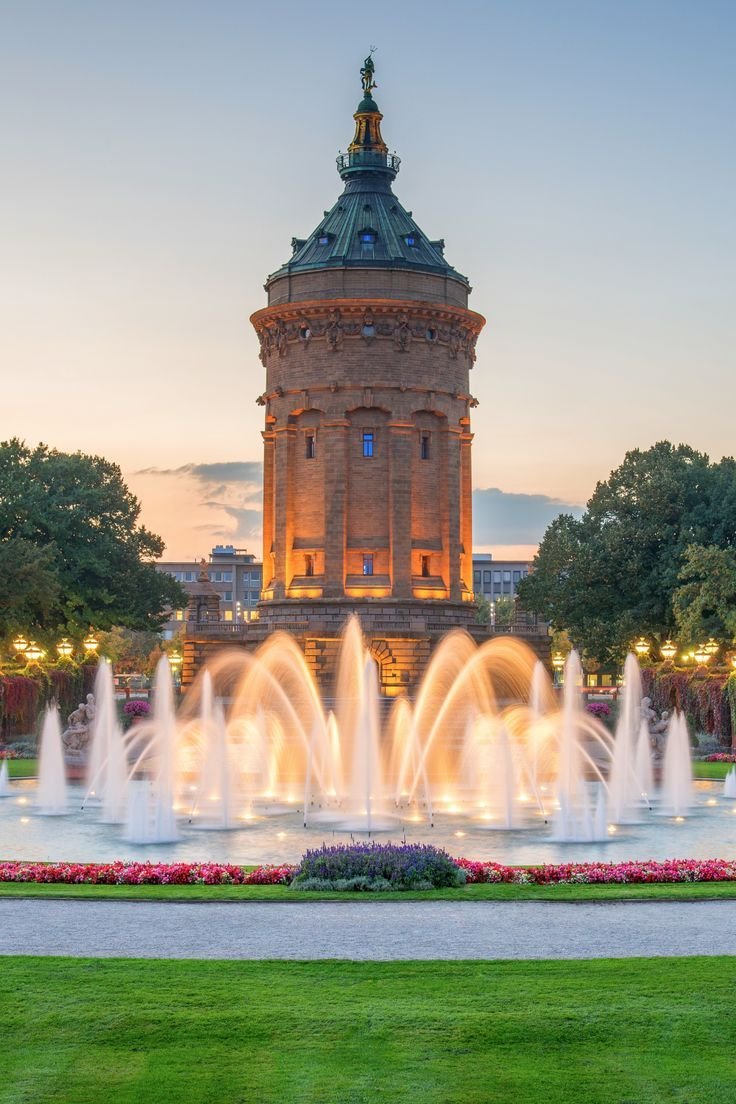
Travel Tips
Germany in 2025 remains a captivating destination, blending centuries-old traditions with modern urban dynamism. To ensure your trip is as rewarding as it is safe, it’s essential to be aware of current safety recommendations, understand local customs, and familiarize yourself with basic German phrases. Here’s a comprehensive guide to help you navigate Germany with confidence and respect.
Safety Advice
General Safety and Security
Germany is considered a safe country for travelers, but like any major destination, it’s important to stay vigilant and informed. As of April 2025, the overall security situation is stable, though there are a few key considerations:
- Border Checks: Temporary border controls are in effect at all German land borders until at least September 15, 2025. These checks may lead to delays, so allow extra time for border crossings and keep your passport handy at all times. Be prepared to show identification to authorities upon request, even within the country.
- Terrorism Advisory: Authorities advise a heightened awareness due to an ongoing threat of terrorism. While the risk remains low for most travelers, remain alert in crowded places such as transportation hubs, tourist sites, shopping areas, and during public events. Report any suspicious activity to the police immediately.
- Petty Crime: Pickpocketing and bag snatching are the most common crimes, especially in crowded areas, public transport, and tourist hotspots like Berlin’s Brandenburg Gate, Cologne Cathedral, and Munich’s Oktoberfest. Always keep your belongings secure, use anti-theft bags, and avoid displaying valuables.
- Transport Strikes and Demonstrations: Strikes in the transport sector and public demonstrations are not uncommon and can disrupt travel plans. Monitor local news, check the status of your transport, and allow for flexibility in your itinerary.
- Driving and Road Safety: Germany’s roads are generally excellent, but driving habits and traffic laws may differ from those in your home country. On the autobahn, some sections have no speed limit, but speeding fines can be hefty. Cyclists often have priority, and winter tires are mandatory in icy conditions. Always obey traffic signs and be cautious in busy city centers and rural mountain roads.
- Outdoor Activities: If hiking, skiing, or exploring the Alps or Black Forest, ensure you are well-prepared, carry suitable insurance, and consider hiring reputable guides for challenging routes. Weather can change rapidly in mountain regions.
Practical Safety Tips
- Carry your passport or official ID at all times.
- Register with your embassy or consulate before travel.
- Purchase comprehensive travel insurance, including coverage for medical emergencies and evacuation.
- Avoid isolated areas at night, especially in large cities or near major transport hubs.
- Keep emergency numbers handy: Police (110), Fire/Ambulance (112).
Local Customs
Social Etiquette
- Punctuality: Germans value punctuality highly. Arriving late, even by a few minutes, is considered impolite whether for business meetings, social gatherings, or restaurant reservations.
- Greetings: A firm handshake with direct eye contact is the standard greeting. Use formal titles (Herr for Mr., Frau for Ms./Mrs.) followed by the surname, especially in professional or first-time encounters.
- Personal Space: Germans appreciate personal space. Stand at arm’s length when conversing and avoid unnecessary physical contact.
- Quietness: In public places, especially on public transport, keep your voice down. Loud conversations or phone calls are frowned upon.
- Recycling and Environmental Awareness: Germany is a global leader in recycling and sustainability. Follow local rules for separating waste, return bottles for deposit refunds (Pfand), and use reusable bags.
Dining and Tipping
- Table Manners: Wait to be seated in restaurants. When dining, keep your hands (but not elbows) on the table, and say “Guten Appetit” before eating.
- Tipping: Service is often included, but it’s customary to round up the bill or leave a 5-10% tip for good service. Hand the tip directly to the server rather than leaving it on the table.
- Paying the Bill: In many restaurants, you’ll need to ask for the bill (“Die Rechnung, bitte”). Credit cards are accepted in most places, but some smaller establishments may prefer cash.
Public Behavior
- Jaywalking: Crossing the street against the light, even when no cars are coming, is frowned upon and can result in a fine.
- Sunday Quiet: Many shops are closed on Sundays, and noise is discouraged. Respect quiet hours, especially in residential areas.
- Photography: Always ask permission before photographing people, especially children or in private spaces.
Language Basics
While English is widely spoken in tourist areas and among younger Germans, learning a few basic German phrases will enhance your experience and show respect for local culture.
Essential German Phrases
English | German | Pronunciation |
Hello | Hallo | HA-lo |
Good morning | Guten Morgen | GOO-ten MOR-gen |
Good evening | Guten Abend | GOO-ten AH-bent |
Goodbye | Auf Wiedersehen | OWF VEE-der-zay-en |
Please | Bitte | BIT-te |
Thank you | Danke | DAN-ke |
Yes / No | Ja / Nein | yah / nine |
Excuse me / Sorry | Entschuldigung | ent-SHOOL-dee-goong |
Do you speak English? | Sprechen Sie Englisch? | SHPREKH-en zee ENG-lish |
I don’t understand | Ich verstehe nicht | ICH fer-SHTAY-eh nicht |
How much does it cost? | Wie viel kostet das? | VEE feel KOST-et das |
Where is…? | Wo ist…? | voh ist…? |
Restroom | Toilette | toi-LET-te |
Help! | Hilfe! | HIL-fe |
Tips for Communicating
- Germans appreciate attempts to speak their language, even if it’s just a greeting or thank you.
- When addressing someone you don’t know well, use the formal “Sie” rather than the informal “du.”
- Signs in public transport, museums, and attractions are often bilingual, but having a translation app or phrasebook can be helpful.
Final Thoughts
Traveling in Germany in 2025 is a rewarding experience for those who approach it with awareness and respect. Stay informed about safety advisories, embrace local customs, and use a few basic German phrases to connect with locals. By following these tips, you’ll not only ensure a smooth and secure journey but also enjoy a deeper, more authentic connection to Germany’s vibrant culture and welcoming people.

